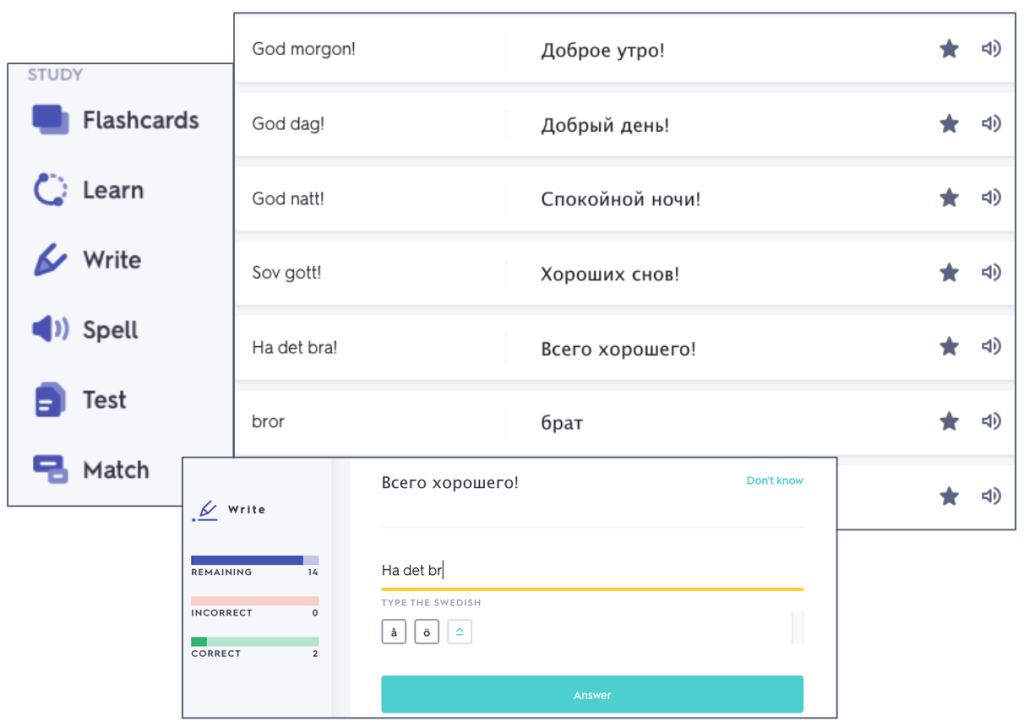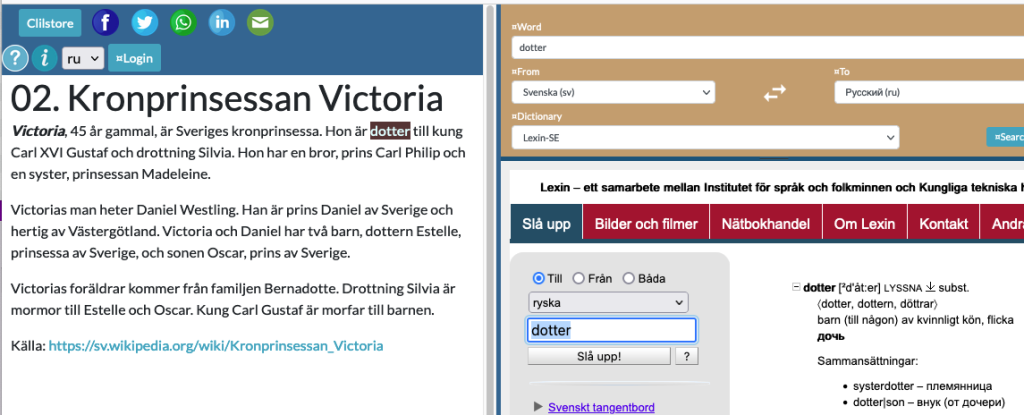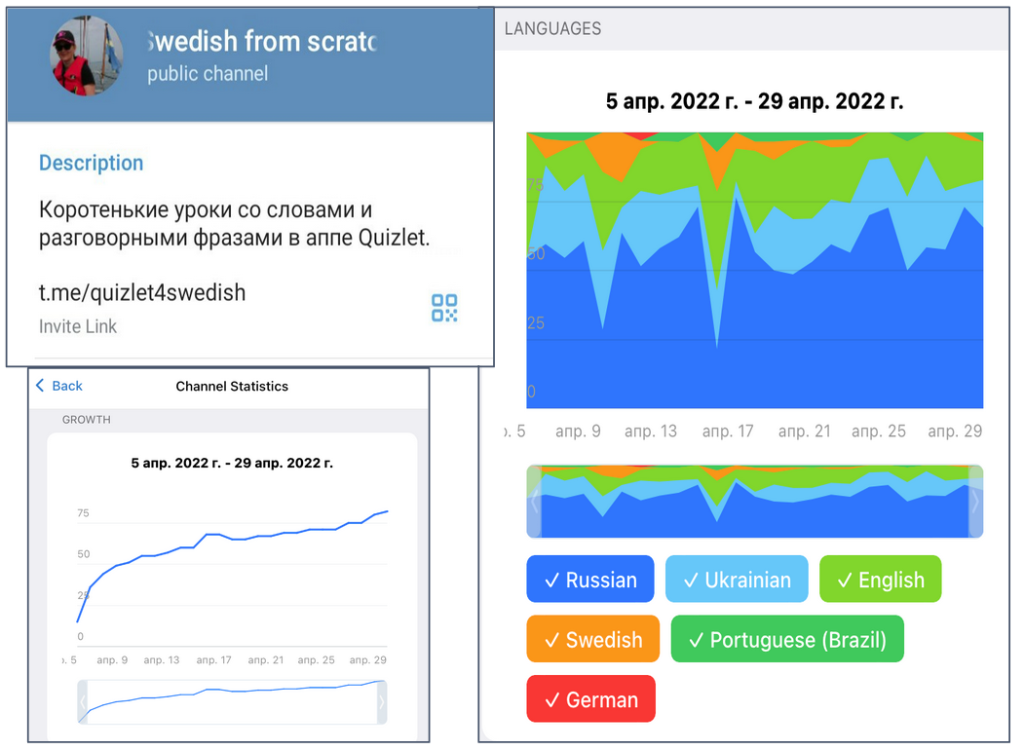Sweden has received a new wave of refugees - Ukranians. They have sound school backgrounds, good university education, are ambitious and want to work. The Swedish government makes sure that Ukranian refugees get a temporary residence permit and a work permit in a fast application process, which at the moment takes about one month from the application date till decision.
Given the above, it is very surprising that the Swedish authorities do not seem to take the most important step at integrating Ukranians into the Swedish society: Ukranians do not get a personnummer, absense of which reduces drastically their possibilities in Sweden, and they do not get a right to study Swedish (i.e. no SFI), absense of which prevents many of them from getting jobs.
Faced with this reality, a researcher from Språkbanken Text (SBX) at the department of Swedish, Multilingualism and Language Technology (University of Gothenburg), Elena Volodina, has in her free time initiated a self-study course for Ukranians called SwedishFromScratch, where basic Swedish vocabulary is translated into Russian and presented in a text. Currently, a few more researchers, namely a PhD student at SBX Arianna Masciolini and a guest researcher at SBX David Alfter, have joined the team with an intention to extend the course with automatic exercise generation, focusing on grammar and vocabulary. Further planned extensions include grammar explanations in Swedish and Russian in collaboration with Julia Prentice, a researcher from the Department of Swedish, Multilingualism and Language Technology.
The course is free and can be followed by anyone. The easiest way to follow it is using Telegram channel where notifications about new lessons are sent, but other access options are under discussion. Up to now the course is a combination of several types of lessons:
- Quizlet lessons that introduce Swedish vocabulary and phrases with their pronunciation and translation into Russian. A set of exercises are automatically generated by Quizlet, e.g. listening, spelling, translation, matching, test.

2. Clilstore lessons that present texts for practicing reading. On the starting page, you can select language "sv" and order by "Title". The "numbered" texts at A1 and A2 levels belong to this course. Once inside a text, the Clilstore platform allows to click on words, which opens a window for dictionaries to the right. The user can set a language for translation (Russain is this case) and a dictionary (Lexin would be enough at the beginner levels).

3. Lätt svenska med Oscar - a podcast channel for listening exercises in easy Swedish. An agreement has been made with the owner of the podcast, Oscar Nyström, that his texts can be transcribed and used for these lessons. Podcast texts are uploaded to Clilstore, and podcast audios are linked at the bottom of the Clilstore texts, for instance, see a green button under the text in this Clilstore lesson.
4. UR språkplay - a set of films series with texts for each phrase you hear, and a translation into the language you choose. There is a possibility to do some exercises based on the texts you hear. The perfect beginner section can be found under Svenska som andraspråk och SFI. SwedishFromScratch recommends some series for watching. The hope is that learners will find series they like and continue watching them on their own without waiting for lesson tasks.
5. YouTube SFI lessons for training listening. There are several good choices on YouTube, and some videos that fit both topics and complexity levels are linked for self-studies.
The current course contains 24 lessons, 9 texts including one transcribed podcast and one YouTube video, and the course is continuously growing. The selection of the focus for the lessons is "need-driven", which means that the course author's communication with Ukranians often decides what to prioritize. For example, their recent visit to the Immigration office made it quite clear that the basic understanding of forms is necessary, which became the reason for setting up lessons 23-24 and writing text 9. A birthday that was celebrated with the Ukranian family living at the course author's home prompted lesson 22 and was an inspiration to write text 8. Easter holiday was the reason to set up lesson 19, write text 6 and attach YouTube video 1 - in an attempt to share some cultural aspects and traditions with the learners.
There are 80 subscribers on the Telegram channel at the moment, with over 200 views for some of the lessons. It is possible to see a dashboard for Quizlet lessons and compete against each other in some of the language games; this option seems to be quite popular among the users of SwedishFromScratch. All in all it points towards the need of this initiative. We would love to encourage all of you to spread the link to this course to reach Russian-speaking immigrants who are in need of basic Swedish: https://t.me/quizlet4swedish

Although the course is an act of good will and is developed in our free time, we consider it highly representative for the Department's core work within both research and education aimed at Swedish, Multiligualism and Language Technology.

